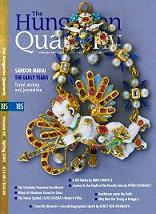Why Men Die Young in Hungary - Mária Kopp in Conversation with Eszter Rádai
Why Men Die Young in Hungary - Mária Kopp in Conversation with Eszter Rádai
Author(s): Mária Kopp, Eszter RádaiSubject(s): Social Sciences
Published by: Society of the Hungarian Quarterly
Summary/Abstract: In absolute terms, more Hungarian men of working age now die annually than in the 1930s. This disturbing fact was recognised in the late 1980s. Similar findings have been reported from the other countries of the former Soviet bloc. A bare quarter of a century after Mária Kopp embarked on her then pioneering research this is now referred to as the East and Central European health paradox. Professor Kopp personally had to confront an array of hindrances under the Kádár regime, not least of which was being refused a passport that would have enabled her to travel to conferences in the West and present the findings of her work in epidemiology, psychophysiology and clinical psychology. Since 1993, Professor Kopp has been Director of the Institute for Behavioural Science at the Semmelweiss University for Medical Sciences, Budapest. She continues to work on the interactions between body, mind and environment in connection with the aetiology of disorders of physiological homeostasis as well as the socio-geographical component of psychosomatic illness.
Journal: The Hungarian Quarterly
- Issue Year: 2007
- Issue No: 185
- Page Range: 92-99
- Page Count: 8
- Language: English

